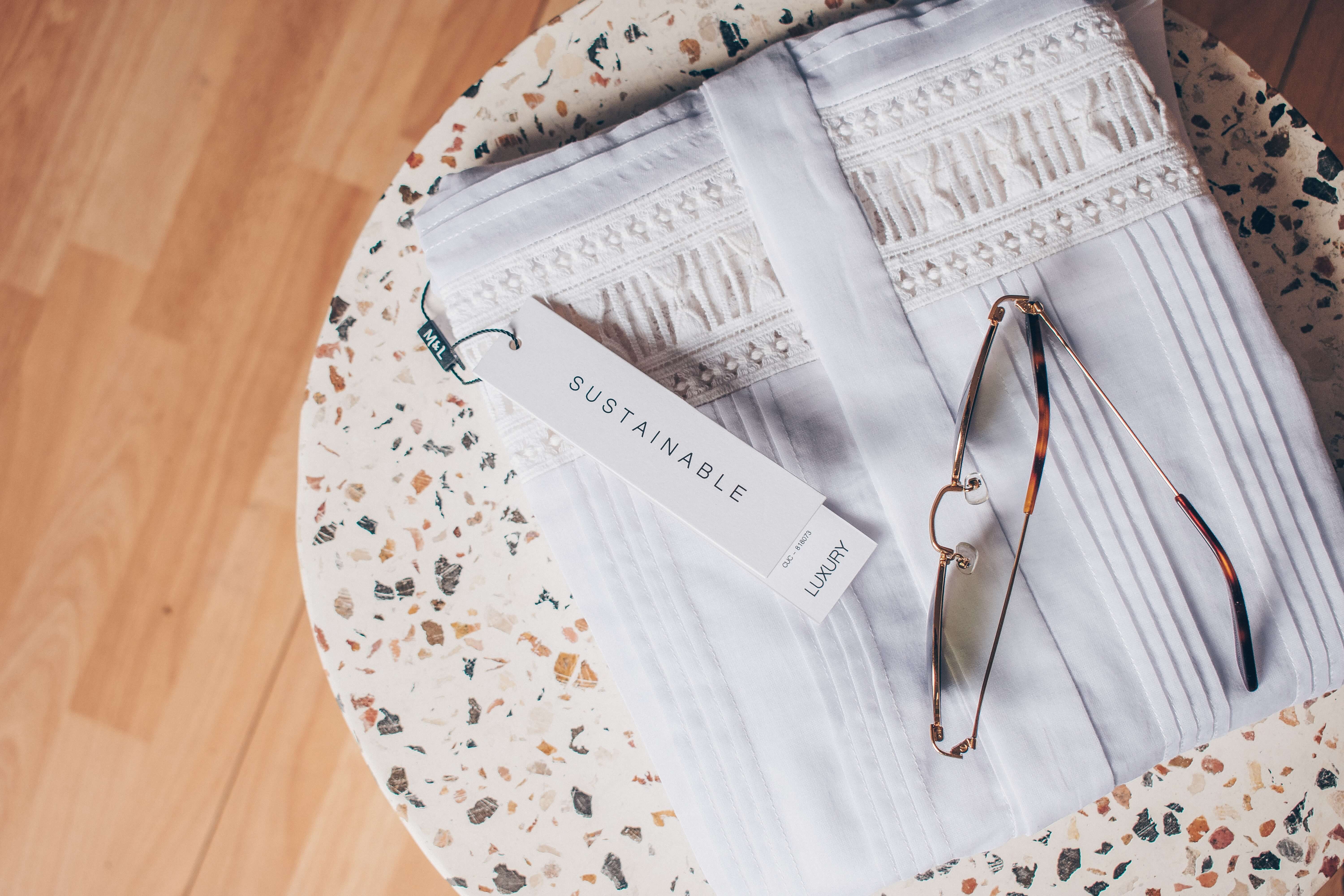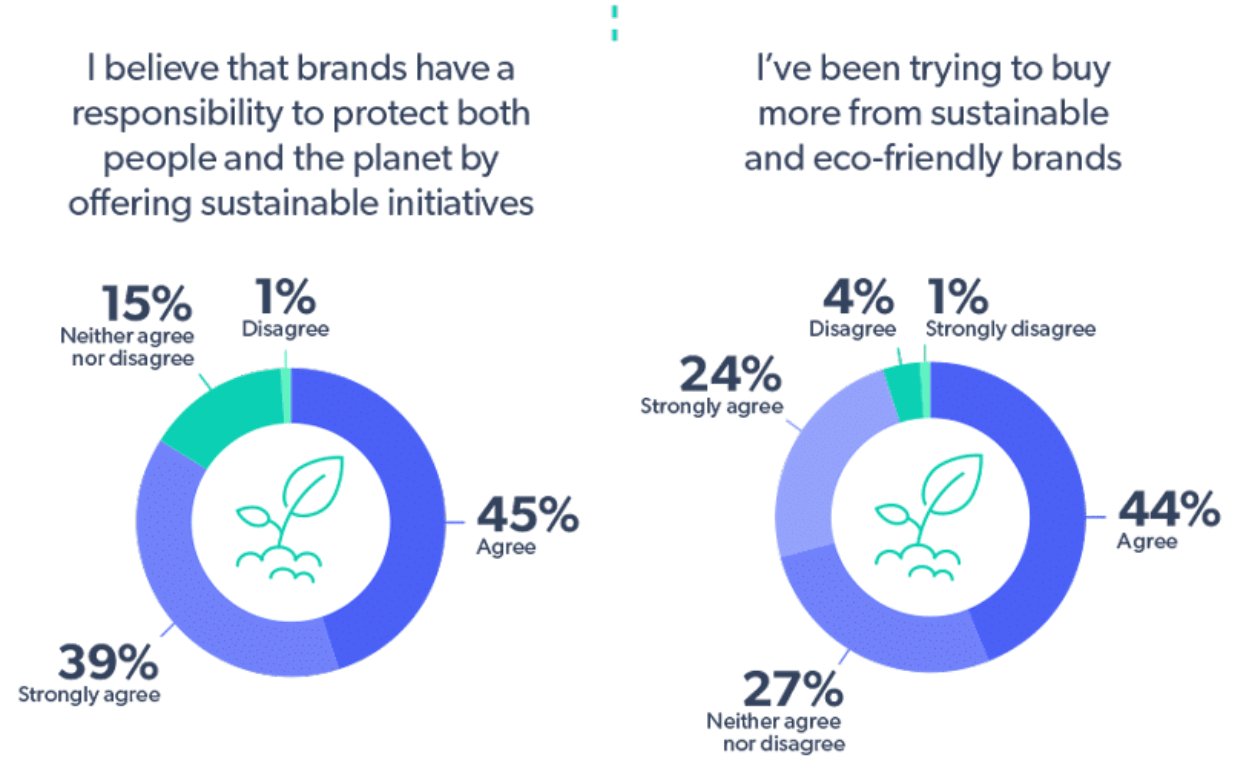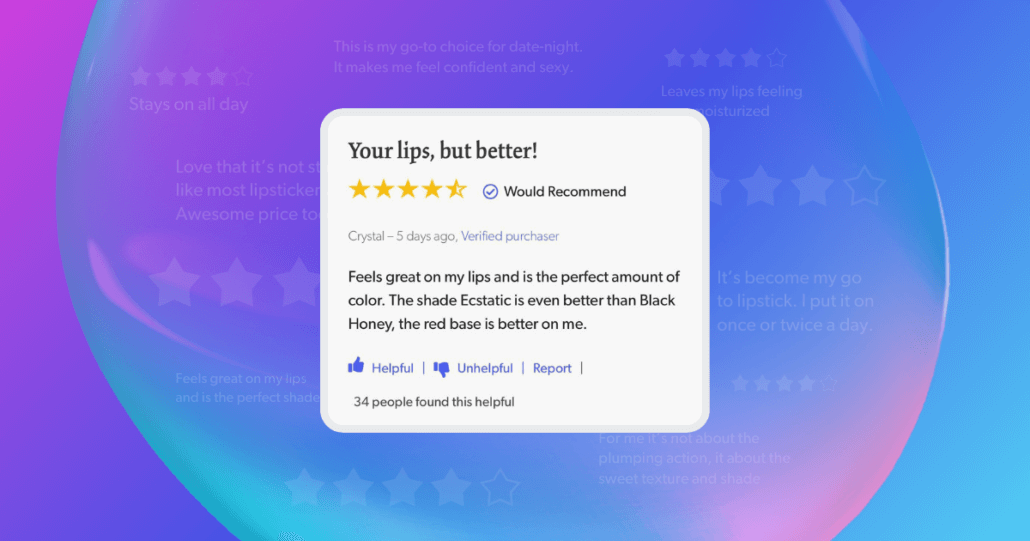April 22, 2022
This is a research report looking at consumer attitudes and buying habits when it comes to sustainability.
Climate change is no longer a possibility for the future — it’s here now. From once-a-century pandemics to unprecedented weather disasters, the effects of climate change are very much something we’re already living with. Dealing with these issues, and a general love and respect for the environment, has made many people much more eco-conscious than they’ve been in the past.
From recycling, to buying electric vehicles, to cutting down on meat consumption, there are tons of ways to be more sustainable in almost every aspect of our everyday lives.
Sustainability research report results
We wanted to specifically research how consumers approached sustainability when it comes to retail. Do they care about it? Do they seek it out? Do they trust companies who say they’re sustainable? To find out, we surveyed over 10,000 global members of our Influenster community. Here’s what they said.
1. Sustainability is a necessity for today’s shopper
The fact is, shoppers want brands and retailers to lean into sustainability. The vast majority of respondents (85%) said they agree or strongly agree that brands have a responsibility to protect both people and the planet by offering sustainable initiatives.
And if you do, they’ll reward you with their dollars for it. In fact, almost three quarters (74%) said they’re willing to pay more for eco-friendly/sustainable/green products.
Over three quarters (78%) said it’s somewhat important or very important to them that the brands/products they use are either green, eco-friendly, and/or sustainable, with only 5% saying that it’s unimportant to them. When shopping, 66% of consumers sometimes pay attention to terms on product packaging such as ‘green’, ‘eco-friendly’, and/or ‘sustainable’, while 28% always do. Only 7% said they never pay attention to those terms.
However, keep in mind that quality and price are still considered. Two in three (66%) said they would not still buy ‘eco-friendly/sustainable/green’ products if their performance wasn’t as good as other products, and another 22% said the price is more important than its impact on the environment.
2. Consumers are actively trying to live more sustainably
Over three quarters (76%) of our sustainability research respondents said they agree or strongly agree that they feel more inclined to use products made from recycled and sustainable materials. They’re actively trying to make their lifestyles more sustainable as well:
- 81% said they agree or strongly agree that they are trying to find more alternative options for ‘single-use disposable products’ (straws, plastic bottles, boxes)
- 78% said they agree or strongly agree that they’ve been trying to bring their own bags when they go shopping now to avoid using plastic bags from the store
- 70% said they agree or strongly agree that they’ve been trying to buy more from sustainable and eco-friendly brands
There’s a big difference in the types of products that consumers focus on when buying ‘green.’ Household products such as cleaning supplies were the most popular answer (67%), while 62% prioritize skincare/haircare products, 56% said cosmetics, 50% said food, and 34% said clothes. Drinks (27%) and DIY products such as hardware and home decor (21%) are what people prioritized least when trying to buy green.
Only 10% said they don’t actively try to buy green in any category.
While the majority of consumers are trying to change their lifestyles to help positively impact the environment, they’re pretty evenly split when asked whether it’s their actions or those of corporations that have more of an effect on the planet.
Just over half (53%) feel personal choices are more or as important as corporate action while 47% think corporate actions can bring about more impact in the world.
3. Consumers want more information on sustainability
As part of our research, we wanted to find out if consumers know what sustainability really means. Almost three quarters (70%) of consumers said they either agree or strongly disagree that they have a good understanding of what the terms ‘green’, ‘eco-friendly’, and/or ‘sustainable’ mean. But they still want to learn more, especially about what brands are doing.
On that note, 62% sometimes search for information about what a company is doing in terms of sustainability on brand websites, blogs, social media and more, and 11% always do.
Over half (51%) said they look at brand websites to educate themselves about sustainable practices and on what other people are doing right now to preserve earth’s resources.Of the rest of those surveyed, 51% turn to search engines like Google/Bing/Yahoo, 44% to Instagram, and 42% to bloggers/influencers to source the same information.
They want to see more content and initiatives by brands on this subject — over half (53%) would watch videos by a brand that describes things like their sustainability initiatives, carbon consumption, and ingredient/material sourcing, while 47% would be interested in brand-led events and initiatives to support climate change action.
And yes, consumers want to hear more from brands on their sustainability efforts, as long as it’s authentic. 77% said they feel confident about the information they receive from brand websites, blogs or social media about their sustainability initiatives, but when asked if they think brands are mindful of their ecological footprint or just marketing it that way, over half (52%) said “it depends”, and nearly a fifth (19%) said yes.
Research your sustainable branding strategy
If you haven’t already made sustainability a priority for your retail brand, you should start ASAP. Consumers are already actively changing their lifestyles to be more sustainable, and they want brands and retailers to follow suit.
Be sure to be as open, transparent, and communicative as possible about the ways you’re prioritizing sustainability. Your planet, and your business, will thank you. Get ahead start on winning over these consumers with a sustainable branding strategy.
To learn more about all things retail, make sure to check out our Shopper Experience Index









